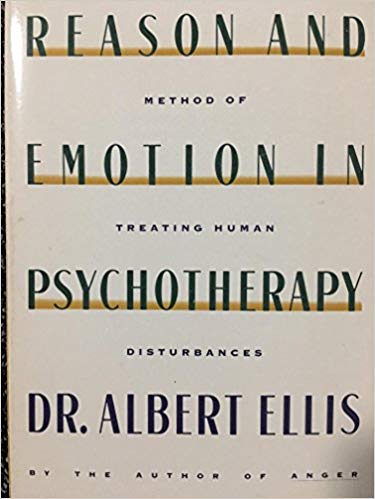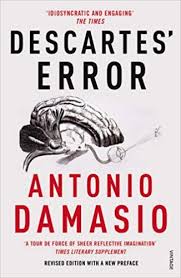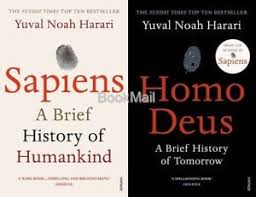Albert Ellis: pioneer in therapy
- By Matthew Jack
- •
- 11 Nov, 2018
- •
The Beginnings of Cognitive Behavioural Therapy (CBT).

Nowadays, cognitive behavioural therapy (CBT) is a mainstream means of helping people with illnesses like anxiety and depression.
CBT began in 1955, in the form of REBT - “Rational Emotive Behaviour Therapy” - as introduced by Albert Ellis. Ellis's key concept was that persisting emotional distress very often goes with sets of irrational ideas and beliefs.
Ellis observed how people can tend to take their experiences too personally - in the sense that they can take them as defining who they are for all time. Hence, to suffer a setback, for example, can be taken to "mean" that we are inherently “unlucky” or "a failure”.
In other words, we can suffer from sweeping generalisations (see “parrot perception”).
Typical of this is to see only “the bad” in something or someone, perhaps even in our own self (see “swan perception”).
Ellis's solution is to keep a calm, rational perspective on the things that happen to us, and to be a little more accepting of reality.
For Ellis, we can afford to have a little more faith in life and in what it holds in store. We can afford to give a little more credit for our human potential - and for our ability to emerge from our past struggles in a good place.
We have to break the tendency for “negative event” (e.g. failing at a job application) to lead to “negative thinking” (“I am a loser”). This tendency, Ellis saw as the very essence of irrational thinking - a thinking that, all too often, is automatic (see “stressed perception”).
Ellis recommended that we become more aware of our irrational thinking in response to events. Challenge our irrational thinking, he suggested, and switch to thinking about our life in a more proportionate, rational way.
Meanwhile, we must avoid the common trap of associating our “negative” feelings and thinking with the “negative events” that apparently trigger them.
*
In my book The Creative Self, I offer a perspective on irrational thinking and skewed perception based on four “stress forces” of fear, anger, compulsive desire and gloom - as can seed within our mind misleading stories and false narratives.
For a technique by which we can increase our awareness of these “stress forces” and take back ownership of our thinking and our real
self - as truly ours - click here.

Nowadays, there's plenty enough food and other essential "goods" to go around for all of us, yet our competitive nature - and culture - remain.
*
"Success" is most often defined in material terms, the message being that "winners" and "losers" are those more or less successful at competing - for example at sporting, academic or other contests.
Our value system reflects this, so that "good" people are regarded as those good at competitions and contests, perhaps in that they are materially wealthy, "beautiful", muscley or slim.
Losers are regarded as inferior, even "bad". Yet by the logic of competition, there must always be losers.
Even if we're incredibly gifted and hardworking, how long can we keep it up being "the best"? Can we always be a "winner" as defined in these terms?
*
Here's another possibility: just by being ourselves, we are "the best" already. Being ourselves is a "competition" that only we can ever win.
*
To be ourselves means to deal with the myriad distractions that threaten to take us away from ourselves. Read here for how forces such as fear and anger can work to distract us from ourselves.
Nonetheless, taking that challenge - and being on that "journey" - is success enough.
If we trust ourselves - and our own human potential - what it takes to be good and "successful will be taken care of.
The prize is our own - creative - self.
Just be prepared to be surprised to the upside.

This blog was inspired by the BBC Radio programme “When Greeks Flew Kites” , airing 4th March 2019, that looked at shame.

Like perhaps philosophy's most famous statement "I think therefore I am".
These words were those of René Descartes (1596 – 1650), a man of such stature in some circles as to be almost an immortal.
For Descartes, thinking was so far advanced that it put experience, feeling and love in the shade. Descartes even explained away the imagination as just a waste of space (this “isn’t essential to me”), and relegated animals to the status of “automata” incapable of feeling any pain.
*
Anyway, despite Descartes' pre-eminence, it is interesting to note that science operates rather differently to Descartes, in allowing a little space for experience.
Science aims to explain reality - but is not over-confident to the point of privileging its explanations ahead of experience.
For science, experience has, ultimately, to be respected - just as Leonardo da Vinci advised.
*
A huge contribution to a new understanding of our faculty of reason has been made by neuroscientist António Damásio.
His book Descartes’ Error (1994) brought to wider attention a brain area where feelings (“affect”) combine with - and strengthen - thinking (“cognition”).
This brain area is the so-called "prefrontal cortex" (PFC).
Damásio wrote that the PFC provides an integrated, intellectual and emotional faculty of reason and decision-making, a proposal that flies in the face of Descartes and his notion of the mind and body as split; hence Damásio’s choice of book title.
To put his idea to the test, Damásio conducted a gambling experiment involving players picking cards from four decks. Unbeknownst to the participants, two of the decks (“C” and “D”) were set up to offer profitable takings, while the other two (“A” and “B”) were arranged sometimes to pay out higher rewards, but overall to sink a player deeper and deeper into debt - thanks to being stuffed full of “stinger” cards that incurred stiff penalties. In order to clarify the role played by the PFC, Damásio included players with known damage to this brain region.
*
Sure enough, “healthy” players learned to pick cards only from decks C and D, whilst those lacking a functioning PFC consistently made the - irrational - choice of picking from decks A and B. By tracking levels of emotional arousal at the time (as measured by skin conductance), Damásio confirmed that irrational choice-making in players coincided with defective processing of their emotions.
Damásio wrote that the PFC provides an integrated, intellectual and emotional faculty of reason and decision-making, a proposal that flies in the face of Descartes and his notion of the mind and body as split; hence Damásio’s choice of book title.
To put his idea to the test, Damásio conducted a gambling experiment involving players picking cards from four decks. Unbeknownst to the participants, two of the decks (“C” and “D”) were set up to offer profitable takings, while the other two (“A” and “B”) were arranged sometimes to pay out higher rewards, but overall to sink a player deeper and deeper into debt - thanks to being stuffed full of “stinger” cards that incurred stiff penalties. In order to clarify the role played by the PFC, Damásio included players with known damage to this brain region.
Sure enough, “healthy” players learned to pick cards only from decks C and D, whilst those lacking a functioning PFC consistently made the - irrational - choice of picking from decks A and B. By tracking levels of emotional arousal at the time (as measured by skin conductance), Damásio confirmed that irrational choice-making in players coincided with defective processing of their emotions.

In this talk, available on YouTube, Yuval makes the distinction between human intelligence and consciousness.
"There has been an amazing development in computer intelligence over the last 50 years," he explains, "and exactly zero development in computer consciousness. And there is no indication that computers are going to become conscious any time soon."
So if it's our consciousness more than our intelligence that marks us out as different from robots, shouldn't we identify a little more with our consciousness? And therefore celebrate our abilities as creatures of consciousness - and so of love and joy, and creativity?
